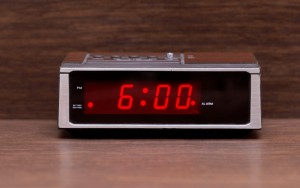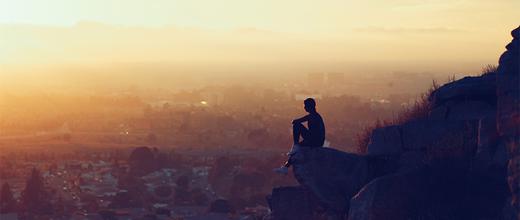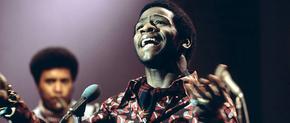The views expressed in our content reflect individual perspectives and do not represent the authoritative views of the Baha'i Faith.
It’s 5 a.m. and my alarm goes off. There’s not a hint of daylight in the sky. I blearily plod downstairs to the kitchen and fumble around for a carton of eggs, some frozen veggie sausages, spinach and corn tortillas. As I prepare myself and my wife a gigantic pre-dawn Feast I think grumpily about how I got here.
You see, every March, for 19 days leading up to the first day of spring, Baha’is around the world begin “The Fast.”
Here’s how it works, it’s really quite simple. You don’t eat or drink while the sun is up.
Like Muslims during Ramadan, most Baha’is get up early and down a bunch of protein, caffeine and complex carbs to get them through at least half the day and then coast through some serious low blood sugar doldrums during a good part of the afternoon. And when the sun sets, look out! Do NOT get between a Baha’i and their cheeseburger when darkness falls! You might lose a hand.

Sometimes the hours tick away quite slowly and you find yourself obsessively checking the clock, almost willing it to hit 6 pm when you can gorge on smoothies and quesadillas. “The Fast” in the Baha’i Faith is certainly misnamed. It should be called “The Slow” for the way time plods throughout the day.
Why would we do such a silly thing, you might ask? Sounds like torture and it certainly can’t be good for your health.
Turns out, there’s been plenty of research to suggest that fasting may in fact detoxify the body and reduce coronary heart disease. But personally, that’s not why I do it. And, I’m guessing, it’s not why millions of followers of other faiths do it, either.
RELATED: When and Why Did Humans Start Fasting?
We’ve all heard about Ramadan (Islam), Yom Kippur (Judaism) and Lent (Christianity) but have you heard of Maha Shivaratri or Chauvihar Upwas or Nyungne? (I hadn’t until I did a recent search. Thanks, Google!) Fasting is a fundamental part of every major world religion.
I don’t know exactly why this is, but I can take some educated guesses.
In all the worlds’ major faiths there is an essential paradox: we are spiritual beings having a human experience through our corporeal bodies. Our reality is dual in nature, and fasting, as an act of physical renunciation, reminds us of our greater reality — the reality of our spirit and our heart.
Baha’is are taught to use this time as a period of self-reflection, prayer and meditation. Abdu’l-Baha, the son of the founder of the Baha’i Faith, Baha’u’llah, describes it like this:
“This material fast is an outer token of the spiritual fast; it is a symbol of self-restraint, the withholding of oneself from all appetites of the self, taking on the characteristics of the spirit, being carried away by the breathings of heaven and catching fire from the love of God.”
There is something very cleansing and powerful about being in a devotional state as the sun rises. And that state heightens your understanding, as the hours and minutes tick through the day, that you’re abstaining from food because of the love of God and your focus on your spiritual self. With every hunger pang, my inner vision focuses on what I’m doing and why I’m doing it.
It’s all about purification. My everyday materialness is shed and my vision becomes more fixed on what is important and true in my life.
As difficult as those 19 days can be, my soul is enlivened as I enter the new year of the new spring. (It should be noted that as refreshed as my spirit gets, my breath usually stinks to high heaven with the thick layer of hourly accumulating tongue goo I affectionately call “fast mouth.” (Sorry, “Office” co-workers!)
Deprivation also provides a deeper gratitude for the ordinary. When you do eat and drink at the end of a long day, you savor the taste of your food in a deeply profound way and have a more intense thanks for what you do have. I’ve had many moments of ‘clarity’ about my place in the universe during those weeks of the Fast.
RELATED: How to Fast Like a Baha’i in 2021
Abdu’l-Baha, as in most things, described in “Star of the West” the spiritual experience with inspiring precision: “Fasting is the cause of awakening man. The heart becomes tender and the spirituality of man increase.”
“…O God! As I am fasting from the appetites of the body and not occupied with eating and drinking, even so purify and make holy my heart and life from aught save Thy Love…”
So think of me, and all of us Baha’is this March. And, as you watch the sun traverse the sky, know that we’ll all be watching it too, praying and waiting for darkness, and that first magnificent bite of cheeseburger.

















Comments
Sign in or create an account
Continue with Facebookor